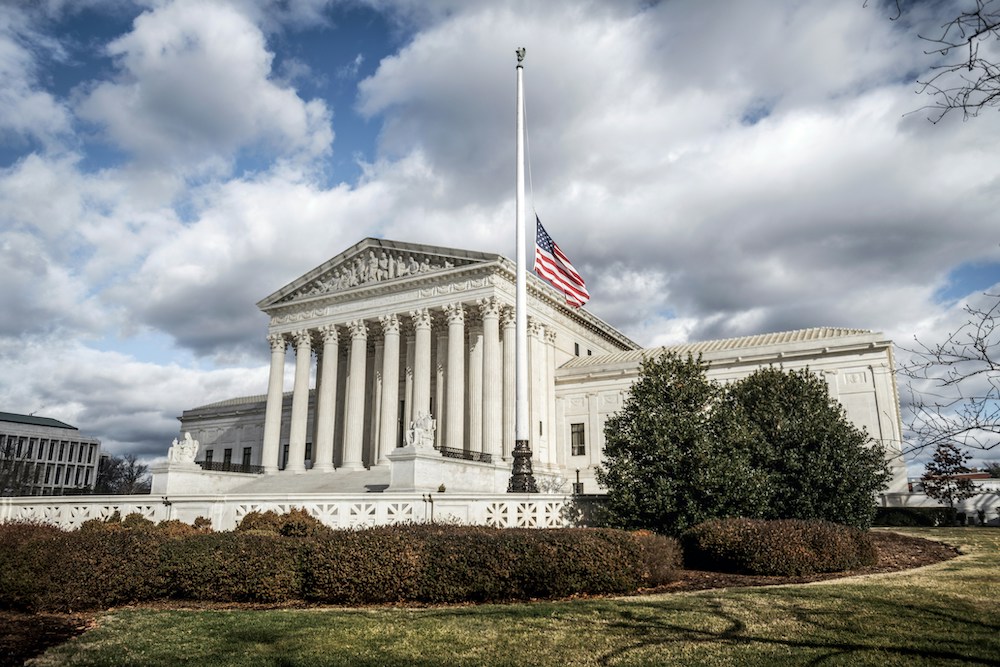
- Details
- By Brian Edwards
- Sovereignty
Two tribally owned tobacco companies have petitioned the U.S. Supreme Court to review whether Nebraska can enforce state tobacco regulations on sales occurring within the Winnebago Indian Reservation.
HCI Distribution Inc. and Rock River Manufacturing Inc., both wholly owned subsidiaries of the Winnebago Tribe's economic development corporation Ho-Chunk Inc., filed the petition on Dec. 2 challenging an 8th Circuit Court of Appeals ruling that allowed Nebraska to impose certain tobacco regulations on reservation-based sales to non-tribal members.
The case centers on Nebraska's enforcement of tobacco escrow and bonding requirements stemming from the 1998 Master Settlement Agreement (MSA) between major tobacco companies and 46 states. Under Nebraska law, tobacco manufacturers must either join the MSA or make escrow payments based on their cigarette sales and post bonds securing those payments.
The legal dispute began in 2018 when the Winnebago Tribe sued Nebraska's state attorney general and tax commissioner, alleging they had colluded with major tobacco companies to undermine tribal sovereignty. A federal district court initially ruled in April 2023 that the state could not collect revenue from tobacco sales made on the Winnebago Reservation, though it could regulate sales outside tribal lands.
The tribal companies argue that Nebraska's regulations infringe on tribal sovereignty when applied to on-reservation sales, even if the ultimate purchasers are non-members. They contend the Eighth Circuit's decision conflicts with Supreme Court precedent and creates a circuit split with the Ninth and Tenth Circuits regarding state authority over tribal businesses operating on their own reservations.
"The very core of tribal sovereignty—a tribe's ability to conduct its own affairs within its own borders—is at stake," the companies wrote in their petition. "Only this Court can clarify its decisions and restore the proper balance of sovereign interests."
The companies emphasize their role in the tribe's economic development efforts. Rock River manufactures cigarettes at its facility on the Winnebago Reservation while HCI Distribution purchases and distributes tobacco products to retailers. Through parent company Ho-Chunk Inc., their revenues help fund critical tribal programs and services.
In dissent, Judge Ralph Erickson argued the majority improperly discounted federal and tribal interests in self-determination and economic development simply because the companies were operating at a loss. He warned the ruling "invites further state regulation of activities on the reservation and chips away at tribal sovereignty."
In their petition, the tribal companies argue that the Eighth Circuit's decision threatens economic development efforts of tribes nationwide and “presages a return to the paternalism Congress has rejected.” They warn the ruling creates a perverse incentive for states to regulate tribal businesses before they can become successful, noting: “Perhaps the most troubling aspect of the Eighth Circuit’s decision is that it creates an incentive for states to strangle tribal economic development in infancy, before those efforts can mature into a robust engine of self-sufficiency. Having used regulations to wound a tribal business, the State can argue the business is too weak to warrant legal protection, thus ensuring that the wound is fatal.”
The tribal companies maintain they already regulate tobacco sales through a Universal Tobacco Settlement Agreement with the tribe that mirrors many MSA provisions. They argue the tribe, not the state, should oversee public health concerns for on-reservation commerce.
The petition raises three questions for Supreme Court review: whether states can directly regulate commerce between tribal entities on reservation lands without showing exceptional circumstances; whether courts can discount tribal interests based on their view of the significance of tribal economic activities; and whether the Eighth Circuit's modified injunction improperly rewrote state law.
According to court documents, Rock River has operated at a loss since 2016, losing $804,401 in 2021. However, parent company Ho-Chunk Inc. has seen significant success, providing over $180 million to the tribe through dividends and donations in 2018.
Per prior Tribal Business News reporting, U.S. District Court Judge John M. Gerrard wrote in his April 2023 ruling that the court "will not allow the state to infringe on the Winnebago Tribe's sovereignty by allowing state authority over a lawful tribal business selling goods on its own reservation."
At the time, Ho-Chunk CEO Lance Morgan noted that the tribe and state had been "making great strides lately in building a relationship" and called ending the controversy "a big step in respecting each other's sovereignty." However, the subsequent Eighth Circuit ruling in August 2024 largely reversed that district court victory.
The tribal companies are represented by Andre Barry and Harrison Kratochvil of Cline Williams Wright Johnson & Oldfather in Lincoln, Nebraska. The Supreme Court receives thousands of petitions annually but typically agrees to hear only about 1% of cases. The Court has not indicated when it will decide whether to take up this case.
